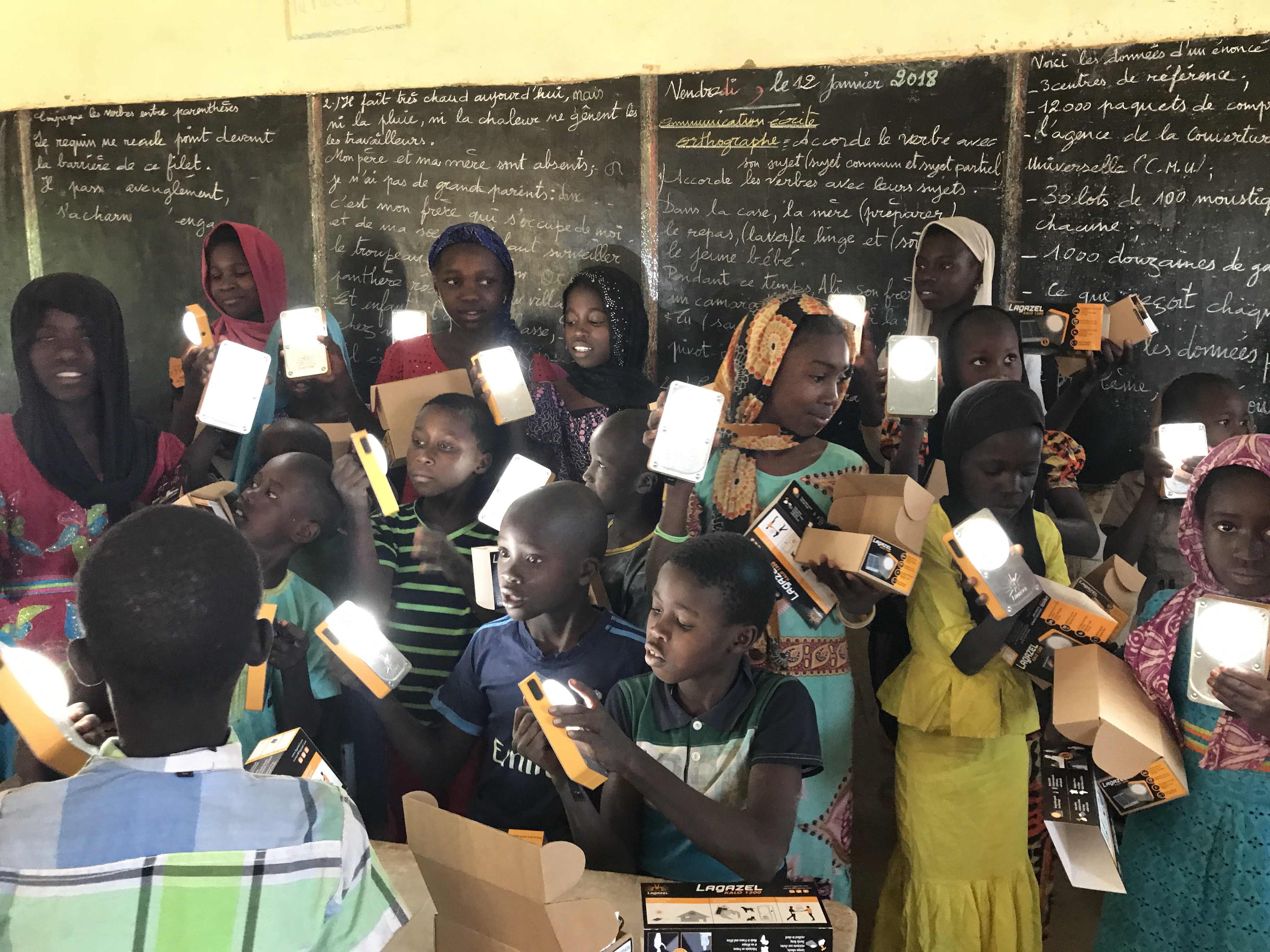While Africa will accommodate one billion additional individuals in 2050, 600 millionAfricans still do not have access to energy, including a majority of children.
Ten million children are born each year into a family deprived of electricity. While this demographic influx represents a real opportunity for the continent, without access to energy, these children will not be able to enjoy basic services (drinking water, education, healthcare) or fully develop their potential and liberate themselves fromthe vicious cycle of poverty. The lack of access to energy is a major challenge for Senegal.
While the country presents a 60% electrification rate, severe disparities exist between the urban and rural areas, notably owing to an imbalanced distribution of energy services. In the absence of stable, good quality energy, the collection and use of fossil fuels is very widespread, particularly the use of oil lamps. In terms of education, the low rate of access to energies impacts both the enrolment rate, the level of education dispensed, and the scholastic results of the children, since the latter are obliged to stop their studies when night falls.
Within the framework of the “Energy of Hope” programme, AMADE is promoting access to solar lamps at 10primary and intermediate schools on the Richard Toll territory and developing a “last kilometre” distribution network for access to energy by children and their families, as well as to the services associated with it, in the fields of healthcare, education, and protection.
To achieve this, a pilot phase will enable a distribution model to be tested and ratified, based on a network of energy kiosks and recharging stations for solar lamps within identified schools and will enable the impact of access to energy to be measured among the students, in terms of education, health, and protection.
Diagnostic: An initial socioeconomic diagnostic phase of the project zone, the state of the supply in terms of access to energy and to digital services, and the identification of the schools, leading to the design of the energy access network.
Installation of the Charging Stations of the Solar Lamps and Development of a Management Model: 10 primary and intermediate schools are identified and equipped with charging stations for solar lamps.
Network architecture and installation of energy kiosks: 2 energy kiosks, installed within the zone of intervention of the Laiterie du Berger (social business promoting the milk production of the farmers along the Senegal River) are created in the form of social businesses run by women. These kiosks will ensure the sale of solar lamps, individual solar kits as well as the promotion of a digital supply dedicated to children (education, health, protection). An optimal system of information and management (management of stock and sales, monitoring the hire of lamps, maintenance, etc.) as well as a solution in the form of Pay as You Go (payment of the products via mobile phone and monitoring of recuperation of debts for goods sold on credit) will be identified and tested.
Capitalisation and Retrospective Studies: This project will be evaluated for capitalisation purposes. This capitalisation will also permit the architecture of the model to be finalised, and the standard supply of services and a specific business plan to be defined, for the development of the energy solutions designed for children and their wider community.
The socioeconomic diagnostic of the project zone allows us to learn the conditions of access to energy and digital services of the target populations, the financial abilities of the households, and their priority needs.
The architecture and economic model of the energy access network is defined.
1 200 students have access to solar lamps.
10 000 villagers have access to energy-related goods and services provided by the energy kiosks.
The results, impact, and effectiveness of the project are evaluated.
Yère,a distribution network extended remotely, to the last kilometre, for children’s access to energy and associated goods and services – pilot phase
Make a donation-
Senegal
Saint-Louis
-
Project status
In progress
-
Duration
2021 / 2022
-
Funding
150 000 €
-
Beneficiaries
2 000 students educated within 10 primary and intermediate schools
10 000 residents living in proximity totwo pilot energy kiosks
-
Partners
Le Partenariat Association
La Laiterie du Berger
Regional Agency for the Development of Saint-Louis
National Education Ministry of Senegal
-
Objectives
To design a “last kilometre” distribution network for children’s access to energy and the goods and services associated with it, focusing on facilities for schools: solar-powered lamps and charging stations, and the establishment of energy kiosks.
To test this network at 10 schools, with 2 energy kiosks.
 L'Amade
L'Amade